9 Varieties From The Diverse Callistemon Genus You Should Consider Growing

SHRUBS > CALLISTEMON > VARIETIES
Reviewed By COLIN SKELLY

Colin is a Horticulturist and Horticultural Consultant with experience in a range of practical and managerial roles across heritage, commercial and public horticulture. He holds the Royal Horticultural Society’s Master of Horticulture award and has a particular interest in horticultural ecology and naturalistic planting for habitat and climate resilience.
IN THIS GUIDE
CALLISTEMON GUIDES
Splendens
Varieties
For a shrub that originated in Australia, quite a number of varieties can be found in the United Kingdom.
“Callistemon are half-hardy with a H3 on the RHS hardiness scale,” shares Colin Skelly, a Horticulturist with almost 15 years of experience.
“This makes them perfect for coastal gardens with milder winters but vulnerable to the lowest winter temperatures across much of the UK.
“They can be planted in conservatories, glasshouses or pots to move back inside in the winter.”
Here is a selection of my favourite Bottlebrush varieties, which also shows off the diversity in the Callistemon genus:
1) C. citrinus ‘Splendens’
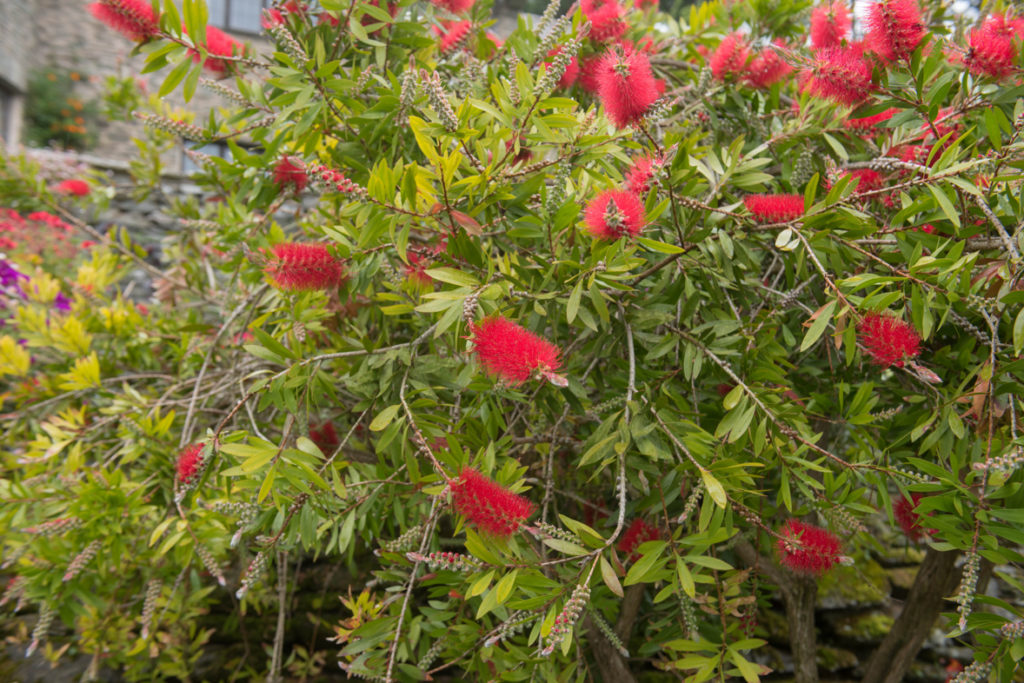
‘Splendens’ is the most popular and well-established variety.
It has a loose habit in nature and grows to a small tree of 3-6m with a spread of about 3m.
It is so popular because it is both very floriferous and has a very long flowering season, covering spring and summer.
Its brushes are bright red, varying from scarlet to crimson.
2) C. citrinus ‘Mauve Mist’

This variety is considered more of a spreading, bushy shrub as its spread may well be greater than its height of typically 3m.
It flowers for two or three months in the summer and is valued for the special hue of its 10cm brushes, which are a pinkish or light mauve hue.
3) C. citrinus ‘Perth Pink’
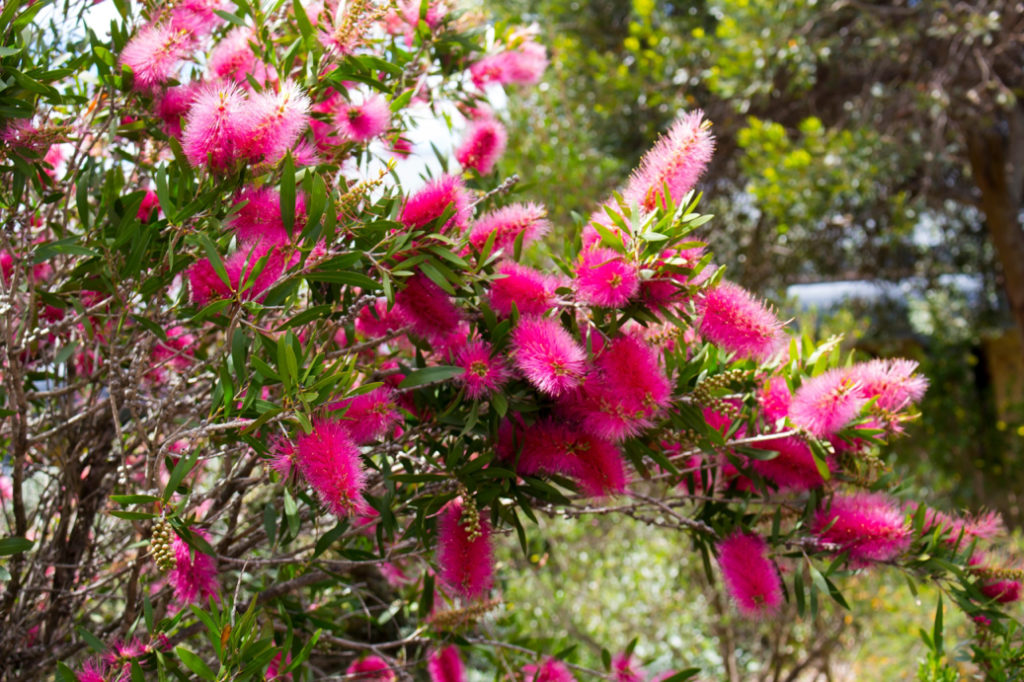
‘Perth Pink’ is a small shrub growing only to a height and spread of 1.5-2m.
An attractive feature is that young leaves are pink-red.
This variety blooms unpredictably and variably – you may get vivid rose-pink brushes in spring, summer, or autumn.
4) C. citrinus ‘White Anzac’
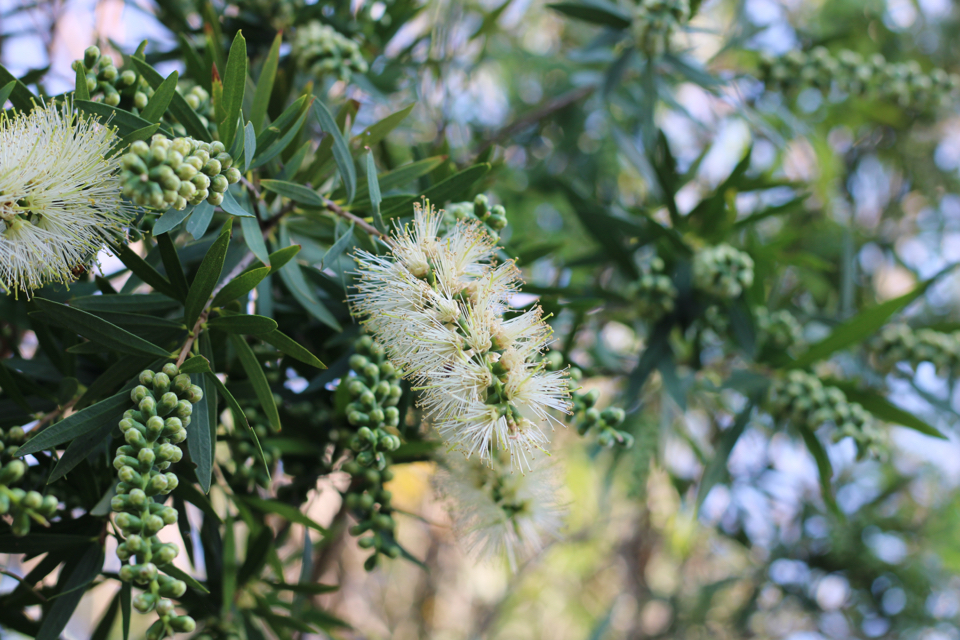
‘White Anzac’ is possibly the most unusual cultivar because its brushes are pure white.
It may be a large shrub or a small tree with a maximum height and spread of about 3m.
The foliage is a bright green with a silvery sheen and this variety flowers from late spring to early summer.
5) C. viminalis ‘Little John’

This variety is rather unlike its big and brawny namesake, who was Robin Hood’s staunch companion, for it is a dwarf that reaches heights of only 40-70cm.
It is a shrub of a naturally rounded form that flowers during summer, producing brushes of an intense blood red to crimson hue.
6) C. viminalis
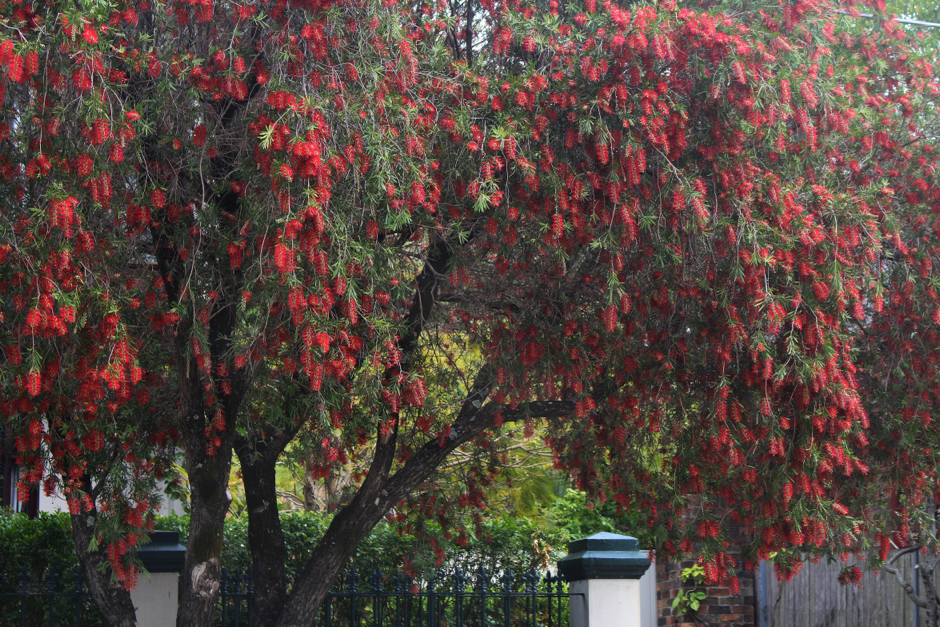
Also known as ‘Weeping Bottlebrush’, this variety is a large shrub, spreading and bushy, or a small tree from 6-8m depending on how you wish to prune and develop it.
It has light, silvery green leaves only 3-5cm long.
Its special feature is that branches and flowers are pendent and droopy and it also produces long brushes that are a scarlet red colour.
7) C. viridiflorus ‘Violaceus’

This is a medium-sized shrub of about 1.5m with a similar spread that has arching branches and a compact habit.
It has greyish-green leaves of only about 3cm and dense brushes of up to 8cm in length, which have an unusual and delightful lilac to mauve hue.
8) C. pallidus
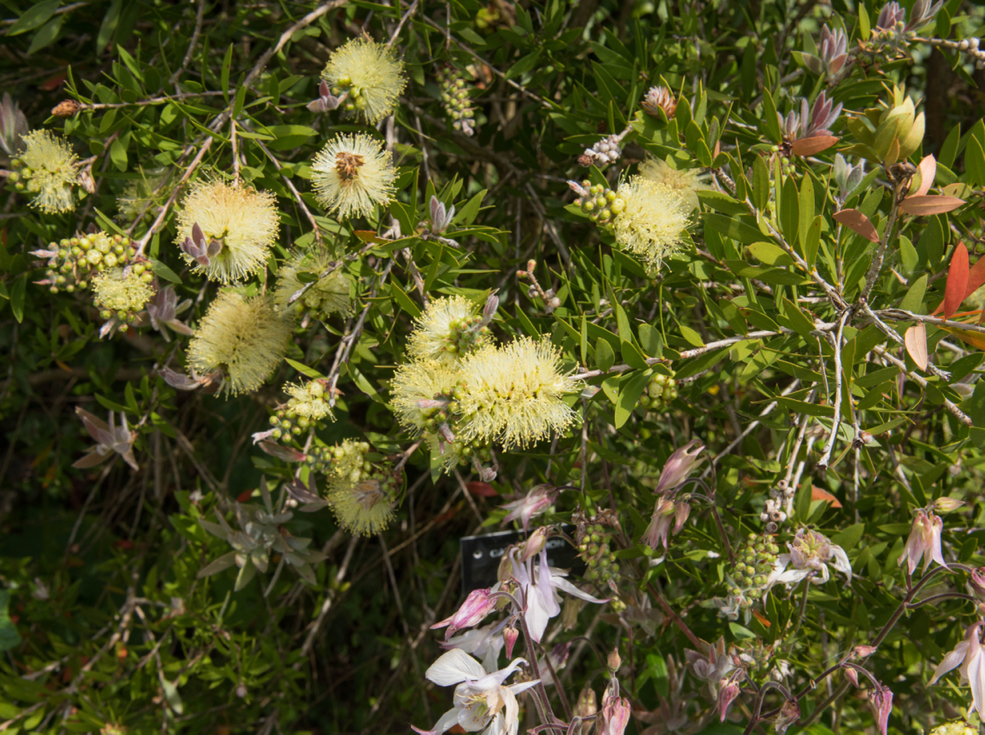
‘Lemon Bottlebrush’, as it is commonly known, is known for its citrusy scent and its brushes that vary from cream to a lemon-yellow shade.
This variety is a medium-sized shrub of 2-4m in height and a spread to match.
Its leaves are greyish-green and not as narrow as most other varieties.
9) C. salignus

Callistemon salignus has an additional colour interest as its leaves emerge red and stay red for quite a long time, eventually turning a deep shade of green.
Depending on how you develop it, it is a large shrub or medium tree ranging in size from 5-12m.
It bears a profusion of brushes from late spring to the middle of summer that are of light but bright yellow hue.

